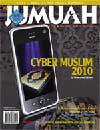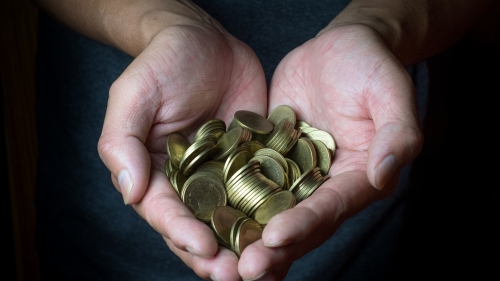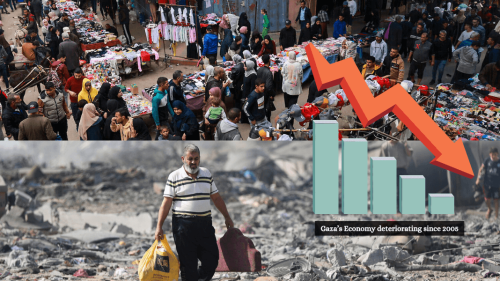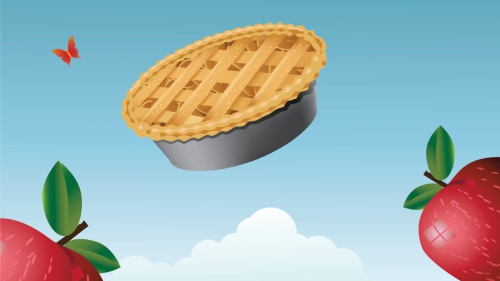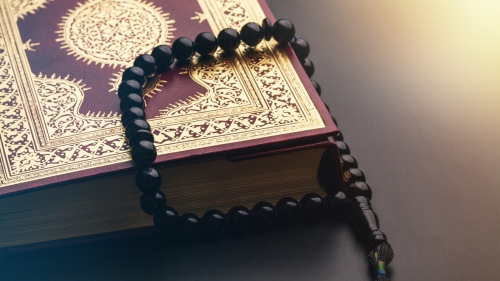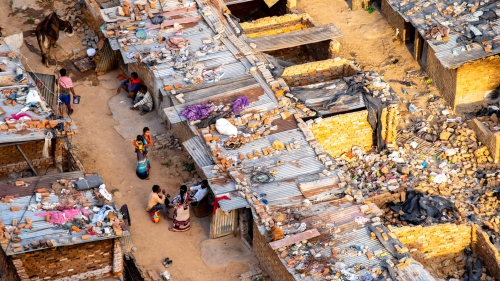Counting Pennies

My earliest memories of independent monetary transactions are from when I was perhaps only five. I remember clutching five rupees tightly in my tiny hands, feeling perhaps like the richest secret in town. Five rupees would now get you nothing, in fact there is now no longer even a five rupee bill. Years back, five rupees amounted to a fortune for a five year old.
In the stoic surroundings of a missionary school, where all indulgence seemed like nothing but indulgence whether big or small, holding on to that money at lunch was such a tremendous and burdensome plea- sure, that as I write this now, I can smell the crumpled bill, in small sweaty hands. I would feel then as I ran out of class and rushed to the canteen that the school's eyes were on me, and everyone who had money was in this race to reach the canteen first.
It was hard, being small, and able to run only so fast, since the senior girls would always push and run to that canteen before you. My tiny head bobbing, as I stood tiptoed to reach the high counters, behind which stood Bernard the canteen man. All the math would run through my head, the order I was to place would rehearse itself umpteen times, until my head was noticed, and my squeak heard. All missionary civility was lost at the canteen. We rushed to get the food, and by the time we had it, we had seven minutes remaining to gobble it down and return to class proud, yet sadly tired.
Why did I go through this? It took me a while to figure out that this was my mother's way of teaching me how to handle and treat money, how to use it and how to feel about it. Five rupees was indeed a luxury for someone so small. Everyday we would get healthy lunch from home, and this 'tuck shop money' was something special, something out of the ordinary. It meant that we were, big enough to be trusted with it. It also meant that if we didn't use it wisely we would be left hungry, and, more than that, we would feel failed at being unable to utilize it in the given time. Of course at dismissal, when my mother would pick us up, perhaps the second question would-be 'so, what did you get for lunch?' It was her way of making sure I hadn't gone hungry, that I had eaten the right thing, but more importantly that I had been able to find my little way in the world of big, pushing girls.
The financial break up had been explained so well, and so many times, of the limited possibilities that my purchase power had to offer. I could have a patty for one rupee, a Coke for three rupees, and candy for one rupee - a total of five. Or, I could have a patty for one rupee, an ice lolly for two rupees, candy for one rupee, and bring one back. Of course, she never gave me four rupees, because that would mean four bills, too much for small hands to clutch. And of course, one had to figure out how to spend this money, for example never first the ice lolly, because it would melt if we then got die patty. And then, the fact that I was really never able to finish a whole glass bottle of Coke anyway, so why not get a patty and a juice, and save money for the ice-lolly to my after dismissal when the canteen would be much more sane.
If we think about this exercise as a whole it teaches valuable lessons. Granted, that all in all it was a big hassle, but would I have been happier without this responsibility? I complained about the bullying to my mom, but never about the money. And this taught me that when you need to use the money, you have to figure out a way in this big, rude world to do it, without being rude yourself. It taught me that yes, money would give me that sense of ownership and independent decision making, but it would be a pain nonetheless. It taught me that I could be proud of having money, but would have no time to play with friends during recess who didn't get tuck shop money.
Yes, it was hands on math, and, yes it was hands on real world. More than teaching me strategies, and exploring possible combinations, skills that are essential in life, it taught me a feeling about money: to never to be overwhelmed if you have it or if you don't, to use it wisely, possibly save for better time, and sort of savor the joy of no burdensome responsibility on days I did not have it.
It was also a lesson in inflation. For right through our years in school we saw the price of Coke go up from three rupees to seven, and then eventually ten. And in those later years if we were lucky enough to get ten rupees from home, we would either go back thirsty, or hungry. Maybe inflation explained why we never got our Eid money from our parents. Generous relatives would give, and stingy parents would keep! It was almost like depositing in a bank that was so secure even though you had no access to your money. There are several ways in which we can give our children exposure, not to money, but to the responsibility of money. I mean the responsibility about earning, saving and spending. The realization that it is from Allah and needs to be utilized to its best capacity is something that children need to be taught early on.
To be acquainted with the concept of sadaqah, and developing the ability to give money to others from one's own is an important lesson. In our missionary school we had what was called a 'poor box', and Islamic schools across America have sadaqah boxes in the classroom. At home too, we could have a small sadaqah box where the children are encouraged to contribute. It is also important that children see an end as regards to this collection. Choosing, or finding a place to give that money, and accompanying the parent to do this deed is essential, so that a sense of personal contribution and fulfillment takes place. Sadaqah shows us both ends of the spectrum, that there is always someone who has enough to give to someone who does not have enough, and it inculcates a sense of dispossession of money, taking it out of our owner- ship rights and placing it in Allah's, where it truly belongs.
I seriously feel that young children do not need a monthly/weekly allowance. Maybe this is because I never had one, but I believe if you keep a too present association and concern with the accumulation of money on a regular basis, then that is all we are training them for, a sort of regular, routine obsession, where it is always on their minds. For instance, we do not wish for the kids ' to only think 'when am I going to get it', or 'I deserve it every week just for being a part of the house' or 'this month I buy this, next month I buy that'. There is also a lot of flaunting to peers about how much they regularly inherit, and how much another kid does not. Having said this, keeping a small bank, saving some Eid allowance or graduation gift money can serve the same purpose of money management without it becoming an obsession. Kids keep spare change saved in piggy banks for a rainy day, like when they desperately want to buy ice-cream, and that is sensible. Piggybanks work well because children learn to save pennies just lying around, and learn the value of keeping a little now to spend more later.
Children could also be encouraged to give away or sell their used books and toys. When you go to the thrift store it fetches you a little money, but children appreciate this personalized barter of sorts. Also, a good idea for groups of kids wanting to buy something is to help them set up a bake sale or a lemonade stand from where they can earn money. Likewise, reasonably paying them for some special chores works well, too.
Another important lesson to impart is that the more we give the more we receive from Allah, both in dunya (this life) and akhirah (the next). Children, like us, are afraid of running out of savings. We are told in the Qur'an that Satan's tactic of stopping us from spending is the fear of poverty, and Allah tells us that if we spend in His way, He doesn't decrease it, but that He increases it. When I told my kid this, he insisted on taking his whole piggy bank for sadaqah to school. It sounds greedy to want to give to get more, but isn't that the very way in which Allah incites us to spend, like a worthy business proposition.
Article provided by Al Jumuah Magazine, a monthly Muslim lifestyle publication, which addresses the religious concerns of Muslim families across the world.
To subscribe please visit https://www.aljumuah.com/subscription
Topics: Children, Economy, Money
Views: 2867
Related Suggestions






